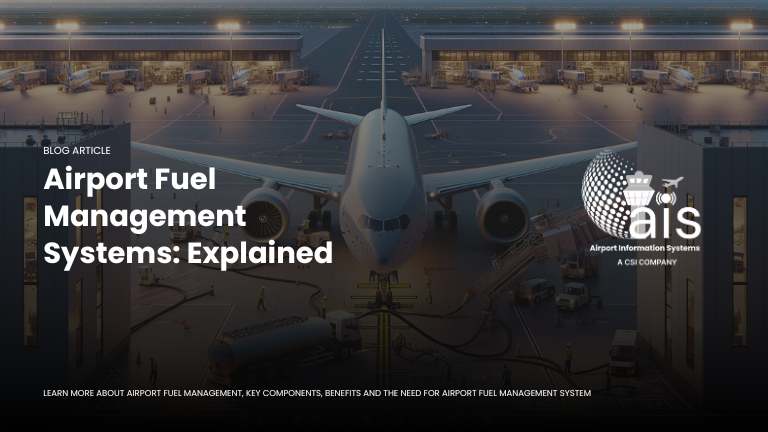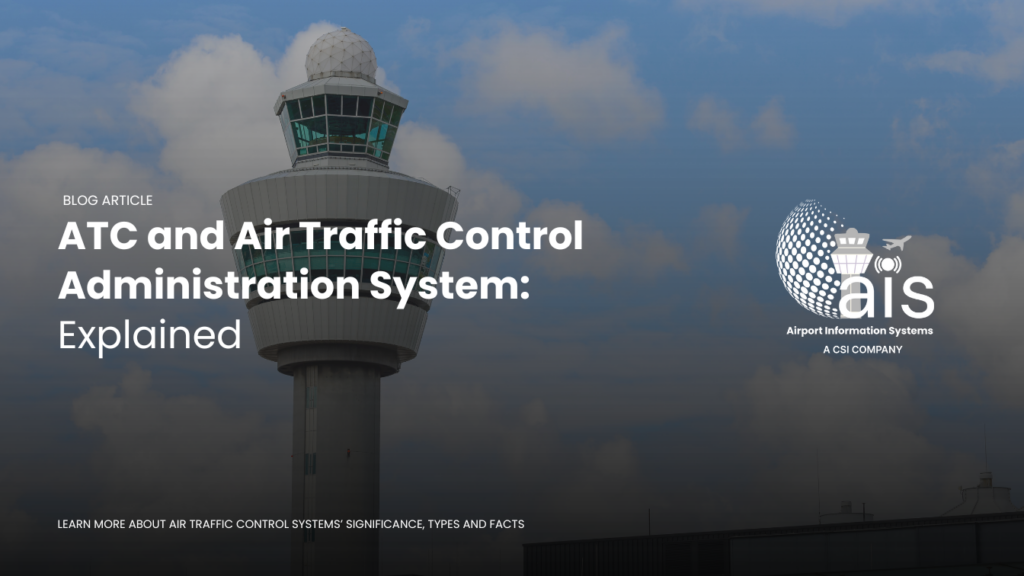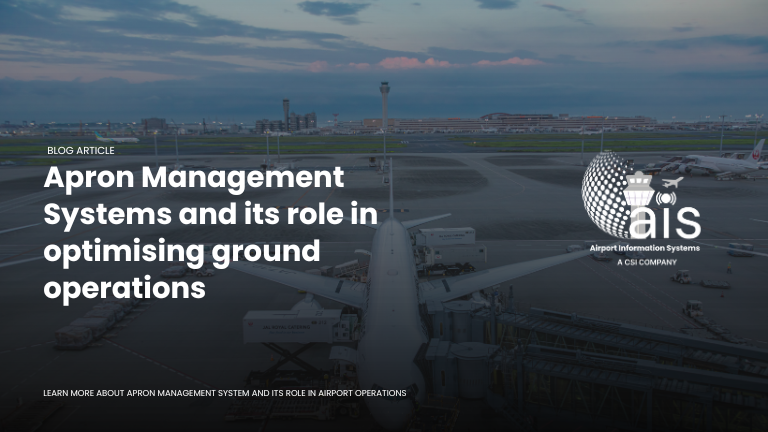- Understanding Airport Fuel Management System
- Why is there a Need for Airport Fuel Management System in Aviation?
- Key Components of Airport Fuel Management System
- Benefits of Implementing a Fuel Management System
- Challenges, Consideration and Future Possibilities
- AIS Fuel System and its Speciality
- Conclusion
- FAQs
Ever wondered how much fuel it takes to get a gigantic aeroplane off the ground? A lot! And such massive consumption rates can be easily recorded and managed by Airport Fuel Management System.
To illustrate this point, here is a modern-day scenario:
A plane like a Boeing 747 uses approximately 1 gallon (about 4 litres) of fuel every second. Over the course of a 10-hour flight, it might burn 36,000 gallons (150,000 litres), translating to roughly 70,000 litres just for takeoff and climb!
That’s just for one aircraft, and given that an airport has to manage multiple of them for every hour of every week, efficient fuel management becomes crucial for both airlines and airports.
That’s where Airport Fuel Management Systems come in – a sophisticated airport system that streamlines the entire fuel management process, saving time, money, and resources.
Let us dive a little deeper into its concept and explore its potential:
Understanding Airport Fuel Management System
An airport fuel management system is a framework designed to monitor, control, and manage the usage, storage, and dispensing of fuel at airports. The comprehensive system tracks fuel inventory, automates fueling operations, and provides valuable data for better decision-making.
The calculations made by the system rely on a combination of detectors and software algorithms to meticulously calculate fuel volume and consumption. These systems utilise tank-level sensors within storage tanks to measure fuel depth and then employ conversion factors based on tank geometry to determine the corresponding volume. Additionally, flow metres precisely track the amount of fuel dispensed during refuelling operations. By integrating this data, the system calculates fuel inventory levels and real-time consumption rates.
Getting accurate fuel equations is critical not only for airports, but also for the safety of the thousands of passengers and crew on board aircraft at any given moment.
Why is there a Need for Airport Fuel Management System in Aviation?
In aviation, fuel is a significant operational cost and a critical safety factor. Effective fuel management systems are necessary to optimise fuel usage, reduce costs, and ensure compliance with regulatory standards. Here are some key reasons for their importance:
Cost Efficiency
Legacy methods of fuel management, relying on manual calculations and estimations, can lead to inefficiencies and wasted fuel. Efficient management systems lead with organised cost handling, also reducing wastage and optimising fuel usage.
Environmental Impact
Proper fuel management helps in reducing carbon emissions, contributing to greener airport operations.
Regulatory Compliance
These systems also ensure adherence to aviation fuel regulations and standards. For example, carrying enough fuel to meet the requirements under various scenarios, including adverse weather conditions.
Operational Reliability
Minimises delays and disruptions caused by fuel shortages or mismanagement.
Data Accuracy
Provides accurate fuel data for better decision-making and planning.
Key Components of Airport Fuel Management System
A comprehensive airport fuel management system is composed of several key components, each serving a vital role in ensuring efficient and safe fuel handling. These components work together to streamline operations and maintain regulatory compliance. The main components include:
Fuel Inventory Management
The inventory management of jet fuel is critical for tracking resource levels in storage tanks accurately. It provides real-time data on fuel quantities, helping airports avoid shortages and overstocking. This component often includes automated alert systems that notify staff when fuel levels are low and reordering is necessary.
Fuel Dispensing Systems
Fuel dispensing systems ensure precise and efficient fueling of aircraft, reducing the risk of human error. These systems can be integrated with self-serve pumps, allowing for seamless operations.
Advanced fuel dispensers are equipped with metering technologies that ensure accurate measurement of fuel dispensed. This precision is crucial for maintaining fuel efficiency and safety standards, as well as for providing accurate billing to airlines.
Data Integration and Reporting
The whole job of a fuel management system revolves around data integration and reporting. It is essential for consolidating information from various sources into a cohesive system. Real-time data gathering and processing enable accurate and timely invoicing, which is crucial for financial management. This component provides comprehensive reports on fuel usage, inventory levels, and sales, which are invaluable for strategic planning and regulatory compliance.
Having a robust reporting system helps airport management make informed decisions based on reliable data.
Payment and Invoicing Systems
Payment and invoicing systems facilitate smooth and accurate financial transactions related to fuel sales. These systems handle various aspects of billing, including VAT calculations, which are particularly complex in the aviation industry. Automated invoicing reduces administrative workload and minimises errors. Efficient payment systems also improve cash flow management for both the airport and its fuel suppliers.
Carnet Card Support
Carnet card support enables the use of specialised fuel cards for transactions, simplifying the payment process for airlines. These cards provide a secure and efficient method for tracking fuel purchases. By integrating carnet card support into the fuel management system, airports can streamline billing processes and offer flexible payment options to their clients.
Incentive and Discount Management
Incentive and discount management systems allow airports to set up targeted incentives and discounts to manage fuel sales effectively. These programs can be used to attract more business from airlines by offering competitive pricing.
Airports can design custom incentive programs that cater to the specific needs of their clients, analysing fuel usage data. Effective management of incentives and discounts helps in maintaining customer loyalty and optimising revenue.
Each of these components plays a crucial role in ensuring that an airport’s fuel management system is efficient, reliable, and compliant with industry standards. Together, they contribute to smoother operations, better financial management, and enhanced safety in aviation fuel handling.
Benefits of Implementing a Fuel Management System
The implementation of an airport fuel management system provides numerous benefits that enhance the overall efficiency and reliability of airport operations. These systems are invaluable in terms of cost savings and improved safety, in modern aviation. Some of the key benefits include:
Enhanced Efficiency
Streamlining fuel operations significantly reduces manual errors and operational delays. Automated systems ensure that fueling processes are faster and more accurate, improving turnaround times for flights.
Cost Savings
Optimising fuel usage helps minimise wastage and reduce unnecessary expenses. Efficient fuel management leads to substantial cost savings for airports and airlines, enhancing their profitability.
Improved Safety
Adhering to strict safety standards reduces the risks associated with fuel handling and storage. Proper management systems ensure that all safety protocols are followed, minimising the chance of accidents or fuel-related incidents.
Better Data Management
Real-time data collection and processing provide valuable insights for decision-making and planning. Accurate and up-to-date information helps airport managers make informed choices, improving overall operational efficiency.
Increased Transparency
Clear tracking of fuel transactions and inventory levels ensures accountability and reduces the potential for discrepancies. Transparent operations build trust with stakeholders and facilitate better regulatory compliance.
Challenges, Consideration and Future Possibilities
Implementing a fuel management system is not without its challenges. Airports must consider factors such as one-time investment and real-time integration with existing airport systems.
Key challenges and considerations include:
- Initial Costs: High upfront investment in technology and infrastructure.
- Integration Complexity: Integrating with existing systems and processes can be complex, rigid and time-consuming.
- Training Requirements: Ensuring that staff are adequately trained to get used to the new system.
- Maintenance: Ongoing maintenance and updates are necessary to keep the system functional and secure.
While these challenges and considerations are modern-day concerns, the future of airport fuel management systems is exciting and full of potential.
With advancements in technology, we can expect these systems to become even more efficient and smarter. Imagine using artificial intelligence to predict fuel needs more accurately or blockchain to ensure every transaction is secure and transparent.
As the aviation industry moves towards more sustainable practices, these systems will also need to adapt to handle new types of fuels, like biofuels and electricity. Overall, the continuous evolution of fuel management systems will help airports run more smoothly, cut costs, and contribute to a greener planet.
AIS Fuel System and its Speciality
Airport Information Systems’s AFIDS Fuel System stands out in the industry with its adaptable design and wide-range advanced features.
- Versatility: AFIDS manages various fuel types (Jet A1, Avgas) and oils, even calculating VAT for Jet A1 at different rates.
- Flexibility: The system allows for both manual data entry and integration with third-party systems, including self-serve pumps, for maximum flexibility.
- Advanced Features: It also offers features like carnet card support, targeted incentives, and comprehensive sales analysis reports.
With over 30 years of experience, AIS has a strong legacy of helping airports streamline their fuel management operations.
Conclusion
To wrap it up, the Airport Fuel Management System is a unified platform to manage Fuel operations in an airport. By leveraging a combination of sensors, software, and automation, this system promises efficiency, safety, and cost savings.
We discussed the key components of a fuel management system, including inventory management, dispensing systems, and data integration. And the long list of benefits that come along with these kinds of systems is also undeniable. While there are challenges like initial investment and integration complexities, the future holds immense potential for these systems.
AFIDS Fuel System by AIS stands as a leading example of a prominent and versatile airport fuel management system. Its adaptability, flexibility, and advanced features showcase the innovative solutions available to airports today.


